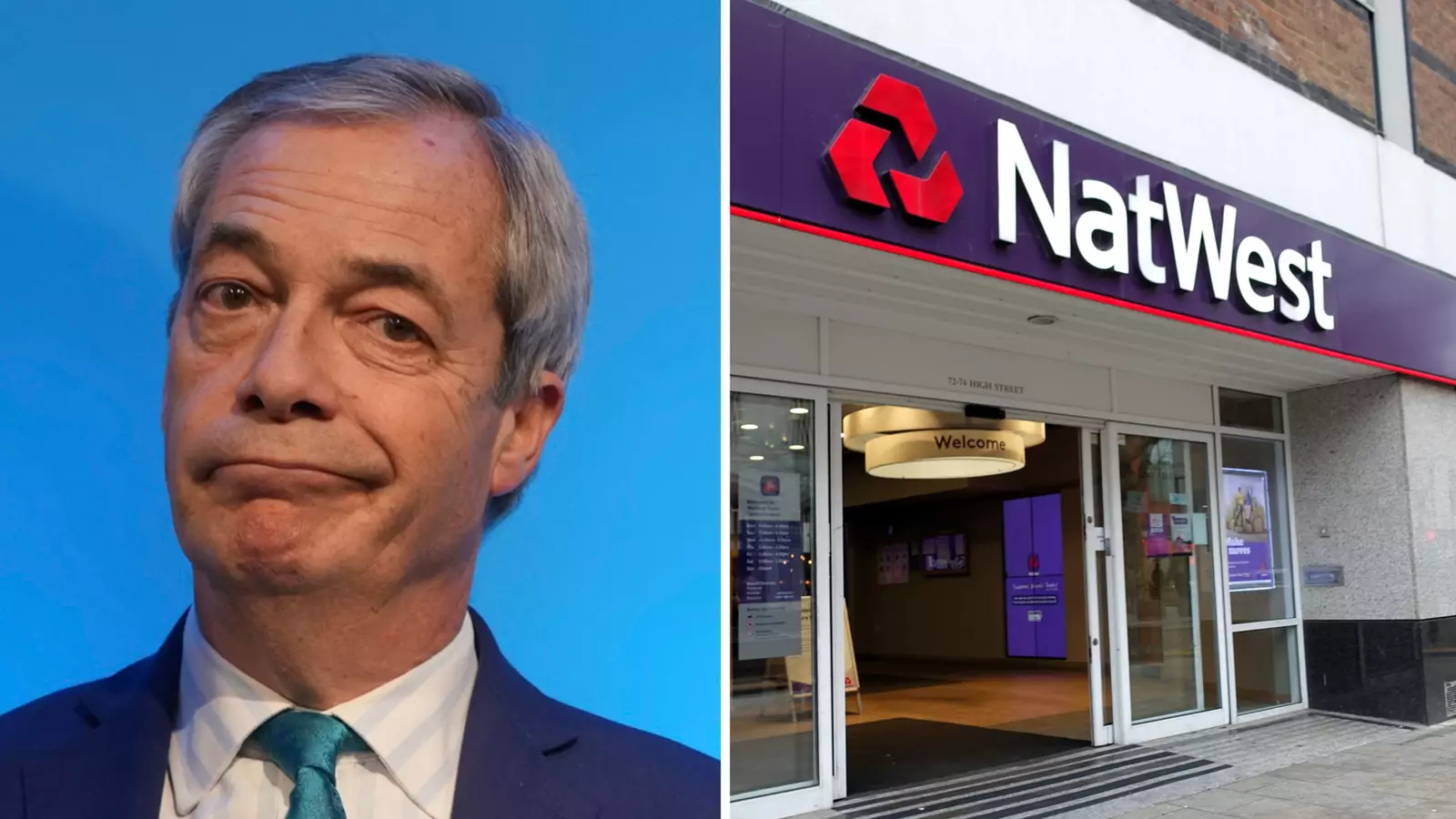Nigel Farage, the leader of the Reform UK party, is taking significant legal steps against NatWest Group, igniting renewed interest in the turbulent debanking controversy that left its mark on the bank’s former CEO, Dame Alison Rose. Following the bank’s moves to close Farage’s accounts, allegations arose connecting the closure to political motivations rather than legitimate commercial reasons. As Mr. Farage embarks on the path of private criminal proceedings, the implications stretch far beyond individual grievances, highlighting possible systemic flaws within the banking system and regulatory frameworks.
Farage’s decision to pursue legal action comes at a critical juncture, coinciding with the publication of NatWest’s annual results. This timing raises questions about the motivations behind the legal move, especially as the UK government prepares to divest its remaining shares in NatWest, nearly 17 years after a massive £45.5 billion bailout. With a backdrop that includes Farage’s ongoing conflicts with financial institutions, his actions could be viewed as an attempt to leverage political capital during a transition period for both the bank and the government.
As the political landscape in the UK becomes increasingly polarized, Farage’s actions seem designed to reassert his presence and influence. Notably, his past successes in elections have positioned him as a significant political player, especially as recent polls have indicated a rising popularity for his party, Reform UK, outpacing traditional political giants like Labour and the Conservative Party.
The debanking controversy has raised vital questions about the practices of financial institutions when dealing with politically exposed persons (PEPs). The UK’s financial watchdog has since emphasized the need for banks to ensure fair treatment towards these individuals, who often possess significant public influence. Allegations of politically motivated account closures cast a long shadow over the integrity of banking operations in the country, suggesting a fragile dynamic between politics and commerce.
The increase in scrutiny over NatWest’s practices following the fallout from the Farage incident highlights the potential for broader legal and regulatory repercussions. Should Farage successfully establish grounds for criminal proceedings, it could pave the way for a re-evaluation of the rights and protections afforded to individuals in similar positions, potentially reshaping how financial institutions interact with their clients based on their political affiliations.
Farage’s legal team, led by prominent criminal barrister Chris Daw KC, has signalled a serious intent to investigate potential criminal conduct by NatWest. This proactive legal strategy is indicative of Farage’s wider ambition to capitalize on the public’s dissatisfaction with established norms and institutions. With his reputation on the line, Farage’s grievances extend beyond personal financial losses; they touch upon broader issues of accountability in the banking sector.
Moreover, the suggestion that discussions around settlement with NatWest have stalled hints at Farage’s determination to escalate the matter publicly. His expressed desire for substantial financial reparations following the debanking incident underscores the deep-seated personal and political ramifications intertwined in this legal battle.
The impact of this controversy rippled through the political landscape, leading to significant pushback against NatWest’s leadership, ultimately resulting in Dame Alison Rose’s resignation. Easier access to financial services for PEPs is now at the forefront of regulatory debate, igniting another layer of scrutiny on banking practices. Public sentiment may increasingly favor greater oversight, particularly in situations where political agendas seem to influence corporate actions.
As Farage’s legal endeavors unfold, they reveal not just a personal vendetta but also a broader reaction against perceived injustices within the financial system. With the next general election on the horizon, the outcome of Farage’s actions could potentially shape the political battleground, influencing voter sentiments and party strategies in ways yet unforeseen.
As the debanking scandal continues to gather steam, the implications for NatWest and the wider banking community remain profound. The scrutiny placed upon the financial institution may lead to crucial legislative changes, aimed at preventing discrimination and unfair treatment of clients based on political beliefs. The evolving narrative around Farage’s legal battle will likely keep public attention fixed on issues of financial ethics and corporate governance, with the potential for long-lasting effects in the UK’s financial sector.
Nigel Farage’s confrontational stance against NatWest represents more than an individual dispute over debanked accounts; it embodies a significant commentary on the intersection of politics, banking, and society. How this saga unfolds could very well redefine the boundaries of political engagement within the financial landscape of the UK.


Leave a Reply